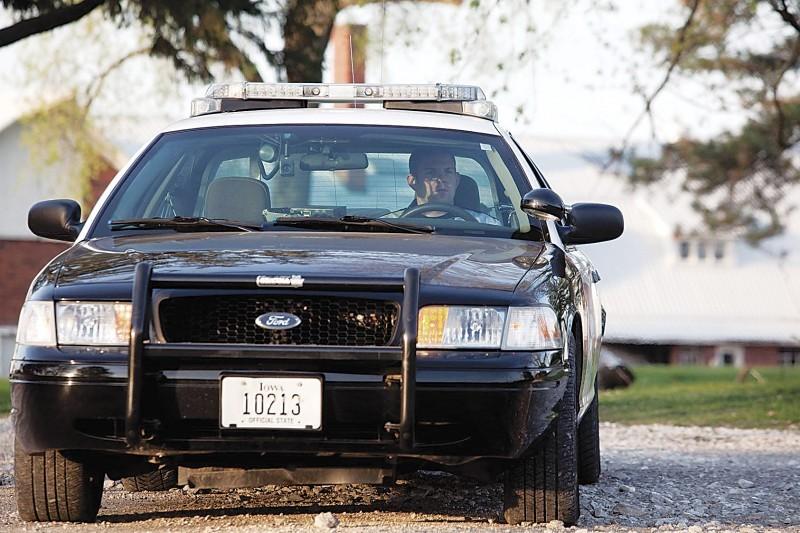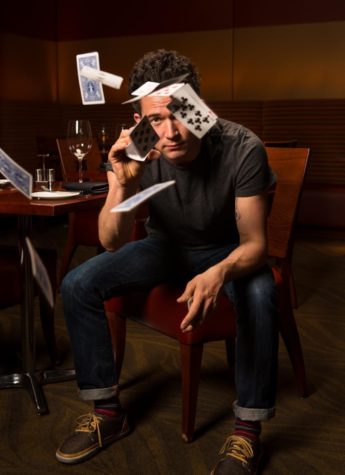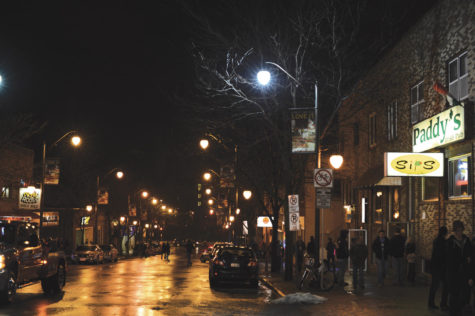An officer’s point of view on Veishea
We are taught at a young age the numbers to dial in an emergency. However, crime is often underreported leaving skewed statistics in Clery Act reports and making it more difficult for local police to do their jobs in protecting the community
April 14, 2013
For an Ames or ISU police officer, Veishea is an interesting time of year to work. The officers have experienced a wide gamut of events, some good, some bad and some ugly.
The two police departments work together during the week.
Veishea week for ISU police officers gets into full swing that Wednesday and lasts through the wee hours of Sunday morning. Officers work days longer than 12 hours and every officer works every day, with some exceptions.
The Ames police department follows a similar format as the ISU police, using an “all hands on deck” strategy, but vamp up their work the Friday of Veishea, instead of Wednesday.
“Our officers really enjoy working Veishea,” said ISU Police Lieutenant Elliott Florer. “We just want it to be a fun and safe time.”
Over the years, Veishea has gained a reputation across the Midwest as being one of the biggest student-organized college celebrations.
Stories are told about the riots of 1989, 1992, 1994 and 2004, “Ash Bash” and fraternity parties with rumored attendances of 500 people. These stories, which stem from the ’90s, have only added fuel to the fire.
These urban legends about Veishea, according to Florer, have attracted people from outside of the Ames and ISU community to Veishea.
Commander Geoff Huff for the Ames Police sees these outside visitors as a wildcard.
“Most of our issues are with people who have no connection to Ames or Iowa State,” Huff said. “These folks from out of town don’t understand what Veishea really stands for and they don’t respect ISU or Veishea; the majority of people we arrest do not go to Iowa State.”
Huff pointed out the stabbing in 1997 at the Adelante fraternity and the death at Chamberlain in 2012 as examples of where the person was not a student at Iowa State.
The coincidence of deaths and people not being linked to the university is a repeated pattern.
“I remember the stabbing in 1997; I was on foot patrol that night. It happened at the end of the night when we were starting to pack up,” Huff said. “It had been a pretty quiet Veishea up until that point, maybe that’s why we were all surprised to hear that something like that had happened.”
“I then went out with other officers, trying to find the suspect after we had heard what had happened. After that, the university tried to have a dry Veishea the next year, thinking that would counter future problems,” Huff said.
The majority of the time, interactions between police officers and students are usually positive. Sometimes the interactions have been humorous for the officers.
“It’s always funny when students don’t recognize who we are,” said ISU police officer Anthony Greiter. “One time I stopped at a stop sign and a kid jumped in the back of my squad car. He kept saying over and over that he needed to go to this certain address. It got really funny when he realized that he wasn’t in a taxi and that he couldn’t get out.”
There have been other incidents of students throwing beers at bike patrol officers thinking they were their friends, only to realize too late they were not who they were perceived to be.
Other incidents have included people jumping out in front of the police paddy wagon to flip off the oncoming truck. Officers say these “not realizing ’til it’s too late” scenarios tend to be the most comical.
Officers from both departments said there has been a culture shift throughout the Ames and ISU community in terms of lessened reckless behavior during Veishea.
The departments still stress that students think before they act in order to avoid past problems.
“If you’re too embarrassed to tell your mom what you did during Veishea, then you’re doing something wrong,” Huff said.















